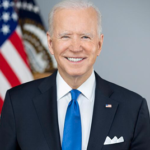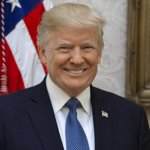The key issues in the 2024 presidential election
1 . The key issues in the 2024 presidential election are shaping up to be diverse and significant. Here’s a summary of some of the major topics: https://mrpo.pk/donald-trumps-election-2024-victory/

- Economy: Economic recovery post-Covid, unemployment rates, stock market performance, cost-of-living concerns, and inflation are at the forefront. The debate continues over whether the economy is strong and working for the majority1.
- Equality: Issues surrounding LGBTQ+ rights, race-based affirmative action, immigration, and crime in major cities are being discussed. The Republican focus on “woke” ideology and the Democrats’ concern over diminishing Black and Hispanic support are also notable1.
- Abortion: Following the overturning of Roe v. Wade, reproductive rights remain a central issue. The focus is on the impact of the Dobbs v Jackson ruling, state-level abortion bans, and the positions of political candidates on these matters1.
- Climate Crisis: Meaningful action on climate change is a critical concern, with discussions on how to address the ongoing environmental challenges1.
- Social Security and Medicare: The debate over the future of these programs is intense, with some proposals suggesting changes to their structure and funding2.
- Education: The curriculum, parents’ rights, and the broader cultural wars, particularly those targeting the LGBTQ community, are being debated among prospective presidential hopefuls2.
- National Security and Immigration: These remain key concerns, with terrorism, national security, and immigration policies being closely scrutinized3.
The key issues in the 2024 presidential election
reflect the complex landscape of American politics and the varied concerns of the electorate as the 2024 election approaches.
2 . As of the latest updates, the main contenders for the 2024 U.S. presidential election appear to be Joe Biden from the Democratic Party and Donald Trump from the Republican Party12. However, it’s important to note that the political landscape can change rapidly, and other candidates may emerge as strong contenders as the election approaches. For the most current information on the presidential race and potential candidates, it’s best to keep an eye on reliable news sources and political analyses.
The Democratic and Republican parties typically finalize their presidential candidates during the summer of the election year, at their respective national conventions. For the 2024 election, the Republican National Convention is scheduled for July 15-181. The Democratic Party has not yet announced the exact dates for its convention, but it usually takes place around the same time. These conventions are where the parties officially nominate their presidential candidates, following a series of primaries and caucuses in the states
3 . Foreign policy and national security are significant factors in the Key Issues in the 2024 Presidential Election, influencing both the campaign strategies of candidates and the concerns of voters. Here are some key points:
- Global Crises: The election is taking place against the backdrop of major global conflicts, such as those in Ukraine and Gaza, which have brought international affairs to the forefront of the campaign1.
- Strategic Competition: The intensifying strategic competition with China is a central issue, with policies regarding China being a major point of debate2.
- Bipartisan Support: There is a general bipartisan support for backing allies like Ukraine, but there’s also a growing sentiment, particularly in the House, against continued aid2.
- Voter Sentiment: While there is broad support for high-level talks between Washington and Beijing, voter sentiment on foreign policy is mixed, with some polls indicating a negative view of the current administration’s handling of international affairs2.
- Impact on Campaigns: Candidates are addressing these issues in their campaigns, with some focusing on America’s role as an indispensable nation and others debating the acceptance of refugees from conflict zones2.
- Presidential Focus: President Biden, if he were to run, might focus the election on foreign policy, an area where he has extensive experience and comfort2.
- Public Opinion: Public opinion on foreign policy may not necessarily work to the advantage of the incumbent, as domestic issues like the economy often weigh more heavily on voters’ decisions3.
These aspects underscore the complexity of foreign policy and national security in the electoral context, as they intertwine with domestic concerns and shape the political narrative leading up to the election.
4 . The 2024 presidential candidates have varying approaches to foreign policy, reflecting their differing political ideologies and priorities. Here’s a brief overview of how some of the candidates differ:
-

Joe Biden Joe Biden (D): The Biden administration has been a key ally to Ukraine, providing over $75 billion in aid and weaponry. Biden supports Ukraine’s defense but has stated that Ukraine’s entrance into NATO should be considered only after the war1.
- Marianne Williamson (D): Williamson advocates for the use of military forces to defend Ukraine from Russia and believes in increasing the resources provided to Ukraine, including its potential membership in NATO1.
- Donald Trump ®: Trump has called for decreased U.S. involvement in the Ukraine war,

Donald Trump suggesting that European nations should contribute more financially. He has criticized the provision of foreign aid in lieu of loans1.
- Ron DeSantis ®: DeSantis’ foreign policy plan includes pillars such as “Seizing the Initiative, Recovering American Deterrence, Securing the Peace,” and emphasizes countering China’s economic coercion and dominating in technologies2.
These positions highlight the candidates’ different strategies and priorities when it comes to foreign policy, with some advocating for more active engagement and others calling for a more restrained approach.
The 2024 presidential candidates have expressed various views on climate change and international cooperation, reflecting their distinct political platforms and priorities. Here’s a summary based on the latest information:
5 . Climate Change:
- Joe Biden (D): Biden emphasizes the existential threat of climate change and the need for significant investment to combat it. He believes in strong action and international leadership to address the crisis1.
- Marianne Williamson (D): Williamson has not explicitly outlined her climate policy for the 2024 campaign, but her past advocacy suggests a focus on aggressive climate action and environmental justice1.
- Donald Trump ®: Trump’s stance on climate change has been skeptical, and his previous administration rolled back many environmental regulations. His position for the 2024 campaign is not yet clearly defined1.
- Robert F. Kennedy Jr. (I): As an environmental lawyer and activist, Kennedy’s views are likely to strongly support climate action, though specific campaign policies are not detailed1.
6 . International Cooperation:
- There is a consensus among both Democratic and Republican parties on some foreign policy issues, such as the strategic rivalry with China and protecting domestic manufacturing. However, they diverge on topics like climate action, the war in Ukraine, and relationships with allies2.
- The debate within the parties also reflects different visions for America’s global posture, ranging from limited international engagement to prioritizing the Indo-Pacific, to advocating for continued global leadership2.

These positions indicate that climate change and international cooperation are pivotal issues in the 2024 election, with candidates offering a range of approaches from active international engagement to more isolationist perspectives.
7 . The protests against Israel’s policies in Gaza and the Biden administration’s support of Israel could potentially impact the outcome of the 2024 U.S. presidential election. Public opinion is a significant factor in elections, and widespread protests can influence the political landscape. Here are some key points based on recent events and analyses:
- Public Protests: There have been notable protests in the U.S., with groups active in opposing Israeli policies toward Palestinians leading demonstrations at college campuses and major cities1.
- Voter Sentiment: In states like Michigan, which has a large Arab-American population, there is a movement urging voters to express their discontent with the Biden administration’s Middle East policy by voting “uncommitted” in primaries2.
- Political Impact: Experts suggest that the ongoing conflict and the U.S. administration’s stance could have a major impact on the elections, especially for Democrats, as it puts the incumbent in a difficult political position3.
- Electoral Influence: While Jewish and Muslim votes may not have the power to change the election outcome alone, the backlash on Gaza policy could influence broader public opinion and voter behavior4.
These points indicate that the administration’s foreign policy, particularly regarding Israel and Gaza, could play a role in shaping voter decisions and, consequently, the election results.
Source:
Image Microsoft Designer

